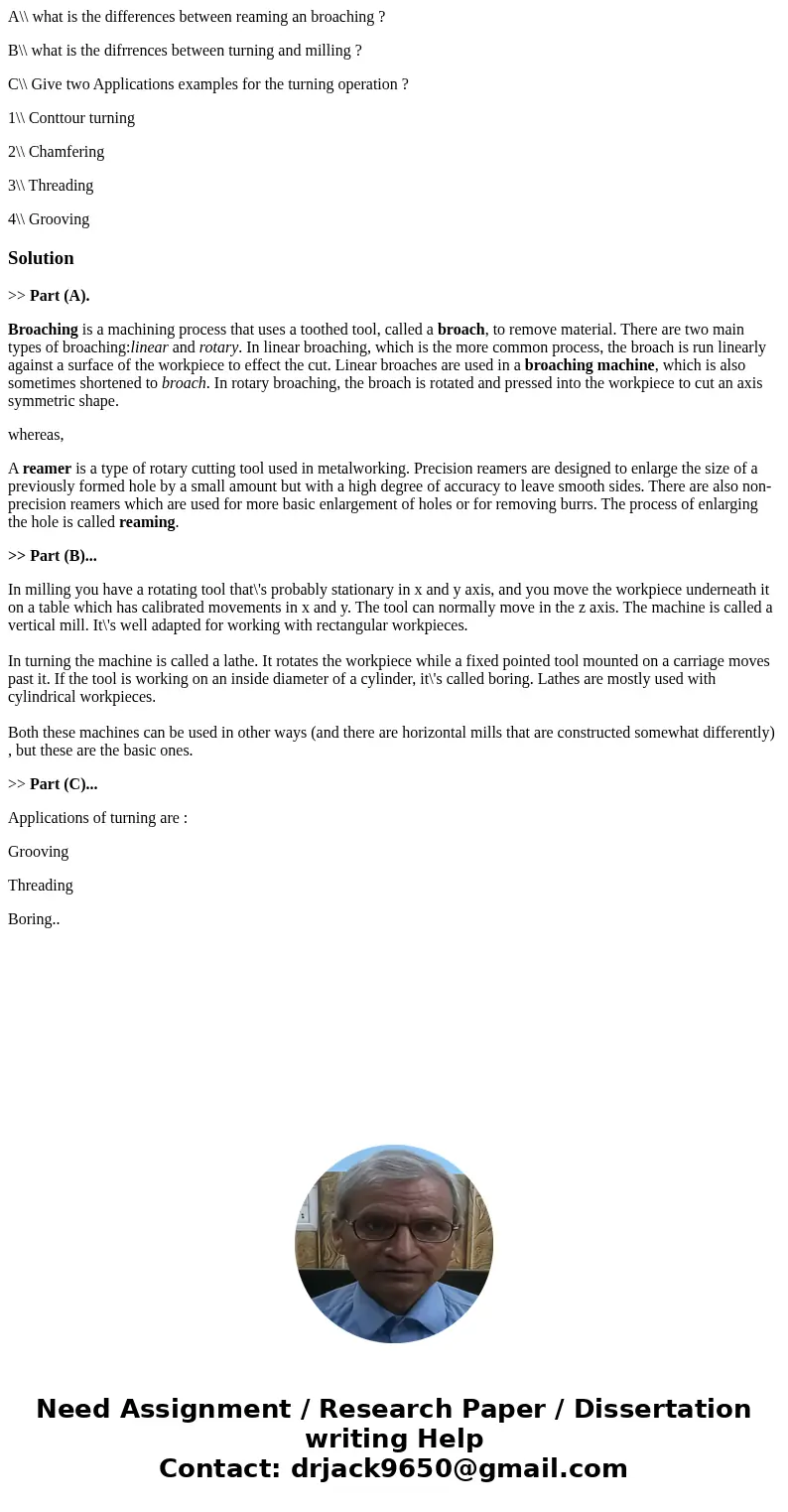A what is the differences between reaming an broaching B wh
A\\ what is the differences between reaming an broaching ?
B\\ what is the difrrences between turning and milling ?
C\\ Give two Applications examples for the turning operation ?
1\\ Conttour turning
2\\ Chamfering
3\\ Threading
4\\ Grooving
Solution
>> Part (A).
Broaching is a machining process that uses a toothed tool, called a broach, to remove material. There are two main types of broaching:linear and rotary. In linear broaching, which is the more common process, the broach is run linearly against a surface of the workpiece to effect the cut. Linear broaches are used in a broaching machine, which is also sometimes shortened to broach. In rotary broaching, the broach is rotated and pressed into the workpiece to cut an axis symmetric shape.
whereas,
A reamer is a type of rotary cutting tool used in metalworking. Precision reamers are designed to enlarge the size of a previously formed hole by a small amount but with a high degree of accuracy to leave smooth sides. There are also non-precision reamers which are used for more basic enlargement of holes or for removing burrs. The process of enlarging the hole is called reaming.
>> Part (B)...
In milling you have a rotating tool that\'s probably stationary in x and y axis, and you move the workpiece underneath it on a table which has calibrated movements in x and y. The tool can normally move in the z axis. The machine is called a vertical mill. It\'s well adapted for working with rectangular workpieces.
In turning the machine is called a lathe. It rotates the workpiece while a fixed pointed tool mounted on a carriage moves past it. If the tool is working on an inside diameter of a cylinder, it\'s called boring. Lathes are mostly used with cylindrical workpieces.
Both these machines can be used in other ways (and there are horizontal mills that are constructed somewhat differently) , but these are the basic ones.
>> Part (C)...
Applications of turning are :
Grooving
Threading
Boring..

 Homework Sourse
Homework Sourse